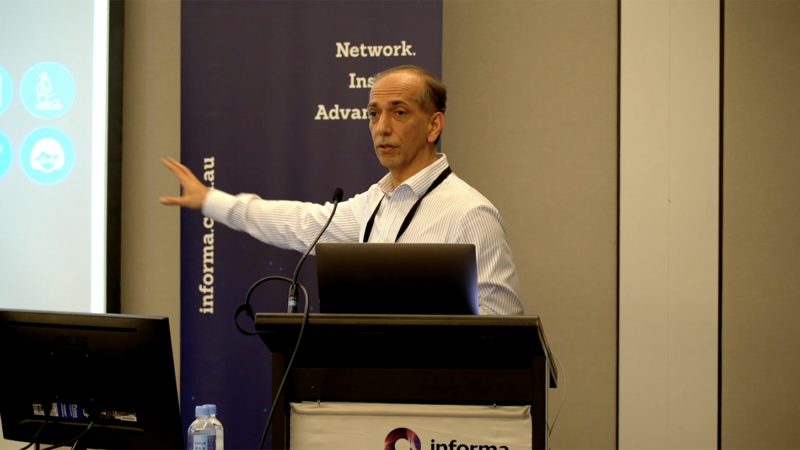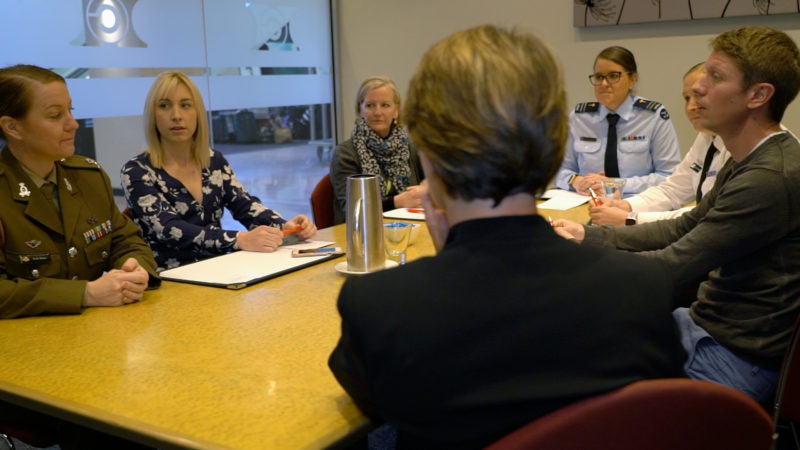CLINICAL RESEARCH INTEGRATES WITH GP AND PHARMACIST WORKFLOWS TO SUPPLEMENT PRACTICE REVENUE Primary health introductions to clinical trials leverages community trust in HCPs
With Charlotte Bradshaw,
CEO and Founder Evrima Technologies
SEGMENT
Filmed in Sydney | January 2025
Clinical trials are crucial to the development of evidence-based preventative medicines. In addition, participation in clinical trials can also provide patients with opportunities to access new treatments.
“Clinical trials are at the heart of medical advances which look into new ways to treat, prevent, or detect disease. Volunteers often do so to help contribute to advancing scientific research, knowing that they are participating in the hope of helping future generations,” said Charlotte Bradshaw, CEO and Founder to Evrima Technologies.
Ms Bradshaw spoke to Australian Health Journal about Evrima’s mission. As an Australian-based digital health company bringing trials to patients, GPs and pharmacists, world-class researchers are able to connect to the wider community through primary health care.
There are hundreds of clinical trials happening around the country and they can take place in hospitals, universities, private clinics and dedicated medical research institutes, yet the trusted role of a GP and pharmacists has opportunity to connect the stakeholder groups.
Research reveals that in Australia, 79% of people would consider being involved in a clinical trial, and 69% would be open to hearing about clinical trials from their GP or Health Care Practitioner. However, barriers such as time constraints, workforce shortages and lack of knowledge about the trials have been identified as barriers to GP referrals.
Each year, clinical trials are conducted to investigate treatment strategies (75%), disease prevention (15%), drugs and medicines (45%), and devices, lifestyles, and behaviours.
In Australia, trials that attract higher participation often centre around cancer and cardiovascular disease. Health conditions such as mental health, neurological and musculoskeletal trials, as well as those dealing with everyday issues including asthma and hypertension, often experience lower rates of participation.
With around 80% of clinical trials being delayed due to recruitment issues, Ms Bradshaw says that new referral platforms such as Evrima’s Evripath can simplify the process for practitioners and patients.
“We understand the daily challenges faced by GPs, but also appreciate that GPs are the gatekeepers to patient participation in clinical trials that are working towards better community outcomes,” said Ms Bradshaw.
Note: Research noted above is cited in the segment
You Might also like
-
Improvements in dental literacy and greater clinical insights through digital technology
Dr. Kenneth Soh is a General Dentist based in Kellyville, New South Wales, a suburb located in northwestern Sydney. Originally from Melbourne, he studied Bachelor of Dental Science (BDSc) at Melbourne University and graduated in 2003. After working for a year in the Mornington Peninsula, Dr. Soh moved to New South Wales, initially thinking it would be temporary; however, he has been there for 19 years. While he has considered specialising, he finds joy in all aspects of dentistry.
-
Artificial Intelligence (AI) in clinical trials and clinical care
Australian Health Journal today continues a major episode release on Technology Aided Healthcare Delivery, with part 2 on Artificial Intelligence in trials and clinical care. Interviews were captured at AI, Machine Learning & Robotics in Health conference in October organised by Informa Australia.
-
Mid-Career Nurse Leadership Program
How does a nurse navigate senior management to affect change within their organisation? It’s a gap that Australian College of Nursing is helping to fill with it’s Mid-Career Nurse Leadership Program that gives established nursing professional access to prominent leaders in nursing.



